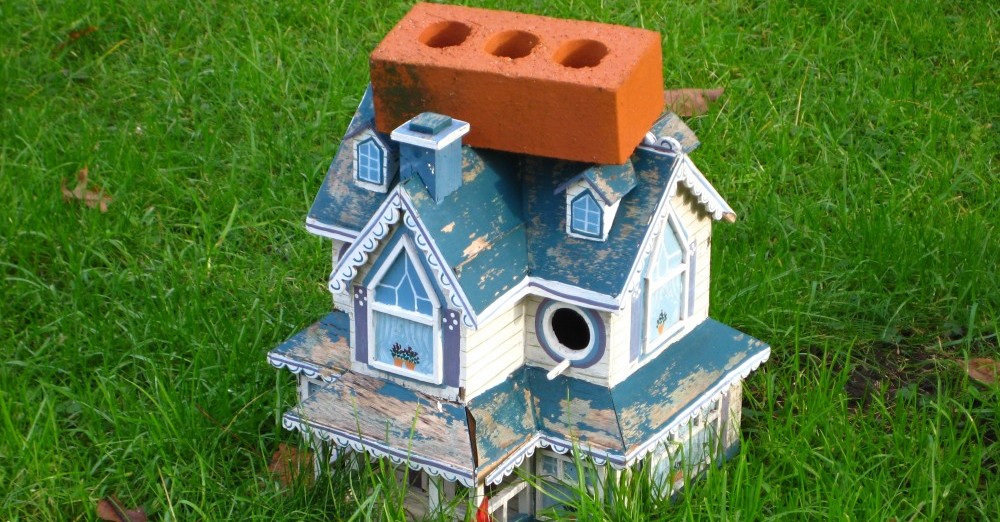rabble is expanding our Parliamentary Bureau and we need your help! Support us on Patreon today!
This week the CCPA released a report asking: what happens if the housing bubble bursts? The answer, as you might expect, is not pretty. The report looks at several scenarios in which Canada’s real estate market declines by 20 per cent, and finds that the effects on young families would be devastating. David Macdonald paints a bleak picture for young homeowners, and underscores the need for governments to prioritize the deleveraging of the household sector.
However, when I read this report, my first thought wasn’t concern for the real estate market. My first thought was: what millennial is buying a house — and can I have their job, please?
Houses are really, really expensive…
House prices have been going up, and up, and up for several decades now. The Bank of Canada predicts that housing prices are on average between 10 per cent and 30 per cent overvalued. Prices have risen 154 per cent since 1999. In every major Canadian city, house prices have doubled (at least) over this period.
Generation Squeeze notes that young Canadians have to save three times longer for a 20 per cent down payment on a house than they did in 1976. Even thought interest rates are low, higher home prices means that the average monthly mortgage payment is larger.
…and I can’t afford it.
Full-time, well-paying employment opportunities for recent grads and young workers are increasingly scarce. The effect of the 2008 recession on young workers has been well documented. In 2014 there were roughly 265,000 more unemployed young than in 2008. Over two-thirds of the vanished jobs were full-time positions. Young workers must take jobs that are less well paying, for fewer hours, for which they are often over-qualified. “Under-employment” has become the norm.
Without stable, well-paying jobs, young workers will not be able to afford the leap into homeownership. I know I can’t.
Most of us have way too much debt
More and more young Canadians are entering university or college, and accumulating more debt than ever before. According to the Canadian Federation of Students, the average debt is $27,000 upon graduation. Those with debt $30,000 saw the fastest growth since 2009: up by 33 per cent.
As Erika Shaker and David Macdonald detail in their report, students have born the brunt of spending cuts to university funding from provincial and federal government through increased tuition and fees.
More student debt means it takes longer and longer for young people to start saving for a house. We are starting our careers at a loss. Can you blame us for being hesitant to add to their enormous pile of debt?
I don’t know where I want to live…
With the job market the way it is, I don’t have the luxury of getting to decide where I want to live. There is only one important factor in my decision: do I have a job?
When you buy a house, you become less mobile. You can’t pack up and move across the country for a six-month fellowship that you pray will turn into something more (it won’t). Settling down, being rooted to one city, would mean giving up on opportunities elsewhere. I don’t have that luxury.
Sure there are factors such as proximity to my family, whether I have friends there, what the brunch scene is like, but when it comes down to it, employment is my single biggest concern.
… but it sure as hell isn’t the suburbs
Housing costs in urban cores, most notably Vancouver and Toronto, have made homeownership in these cities virtually impossible for young workers. Housing is much, much cheaper in the suburbs. Those looking to buy, the cheaper prices of the suburbs are probably the only thing available.
Personally, I have no desire to live in a suburb, no desire to have a two hour-long commute to work, no desire to drive my car to the grocery store because it’s located off the highway. Walkability, access to transit, proximity to bars and grocery stores and restaurants and shops — that’s improves my quality of life.
Someone hire me (full-time, on salary, please)
When I think about my future — career, family, kids — property doesn’t feature into my daydreams at all. Buying a house simply isn’t on my radar. The thought of buying one, just like buying a car, is absolutely bizarre to me. I don’t think of not having these goods as failure — I think of it as sound financial planning.
Davis Carr is a Communications Assistant with the Canadian Centre for Policy Alternatives and a bonafide millennial. Follow her on Twitter @ohhaidavis.
rabble is expanding our Parliamentary Bureau and we need your help! Support us on Patreon today!



